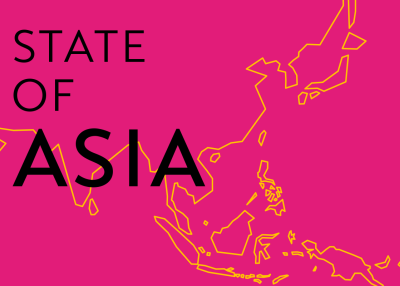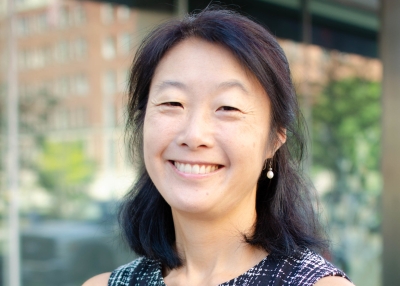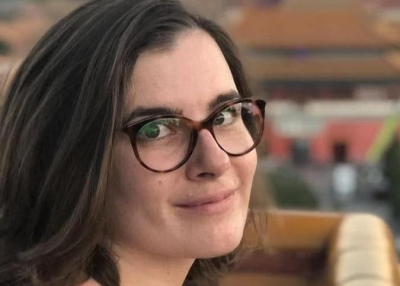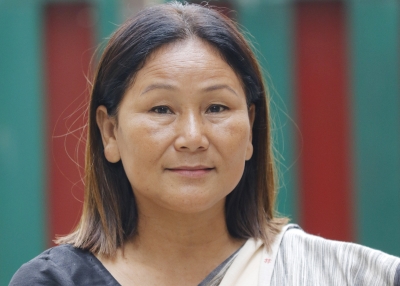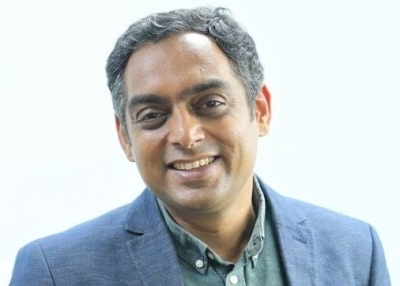State of Asia with Alexander Gabuev
On China, Russia, India, and asymmetry on steroids
GUEST ON THIS EPISODE
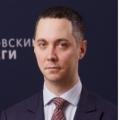
Alexander Gabuev is the Director of the Carnegie Russia Eurasia Center, based in Berlin. He leads a renowned team of analysts who were formerly part of the Carnegie Moscow Center, which was forced to close by the Kremlin in early 2022 after nearly three decades of operation. Gabuev’s own research is focused on Russian foreign policy with particular focus on the impact of the war in Ukraine and the Sino-Russia relationship.
Since joining Carnegie in 2015, Gabuev has contributed commentary and analysis to a wide range of publications, including the Financial Times, The Wall Street Journal, and The Economist. Gabuev began his career as a journalist. He was a member of the editorial board of Kommersant and served as deputy editor in chief of Kommersant-Vlast, which at the time was one of Russia’s most influential newsweeklies. Gabuev started his career at Kommersant in 2007 working as a senior diplomatic reporter, as a member of the Kremlin press corps, and as deputy foreign editor.
He has also worked as a nonresident visiting research fellow at the European Council on Foreign Relations (ECFR) and taught courses on Chinese energy policy and political culture at Moscow State University. In 2018, Gabuev was a visiting scholar at Fudan University (Shanghai, China) where he taught courses on Sino-Russian relations. Gabuev is a Munich Young Leader of the Munich Security Conference.
In this episode, Gabuev talks about having to leave Moscow and how he now gauges what's happening in Russia from abroad. He explains how Russia is out of options and increasingly seems to become a vassal state of China, and he talks about how alienation between China and Russia on one side, and the West on the other, is here to stay – and what that means.
Alexander Gabuev will be in Zurich to share his insights at our annual flagship event, the STATE OF ASIA conference on November 22. More information on the program and how to attend is available here.
STATE OF ASIA podcast
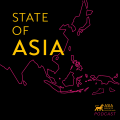
Season 5, Episode 2 – published October 3, 2023.
Host: Serena Jung, Program and Communications Director, Asia Society Switzerland
Editor and Producer: Remko Tanis, Programs and Editorial Manager, Asia Society Switzerland
Find previous and future episodes here, on Spotify, Apple Podcasts, Google Podcasts, or search for 'State of Asia' in any other podcast app. We're also on YouTube.
Transcript
00:00:00 Serena Jung
From Asia Society Switzerland, this is State of Asia. In this podcast we are bringing you engaging conversations with leading minds on issues that shape Asia and affect us all. I’m your host Serena Jung.
In this episode, we welcome Alexander Gabuev, director of the Carnegie Russia Eurasia Center and longtime expert on Russia China relations.
Alexander and his team have been part of the Carnegie Moscow Center, which was forced to close by the Kremlin in early 2022 after nearly three decades of operation.
Alexander talks to us about his move to Berlin. The main features of the changing relationship between China and Russia, and how it is perceived by others such as the EU, India or Vietnam.
This fall, Alexander will be in Zurich for the State of Asia conference on November 22. More info about the conference and how to get tickets is on our website. A link is in the show notes.
00:01:06 Serena Jung
Alexander Gabuev is the director of the Carnegie Russia Eurasia Center. His research is focused on Russian foreign policy, with particular focus on the impact of the war in Ukraine and the Sino Russia relationship. He is a regular contributor of commentary and analysis to a wide range of publications, including the Financial Times, the Wall Street Journal and the Economist,
Alexander began his career as a journalist himself. Among others, he was a member of the editorial board of Kommersant and served as deputy editor in chief of Kommersant-Vlast, which at the time was one of Russia's most influential news weekly. Sasha, thank you for joining us today and for returning to Asia society.
00:01:49 Alexander Gabuev
Great to be with you, Serena.
00:01:51 Serena Jung
You have studied Sinology and have been working on Sino Russian relations for a long time now. First as a journalist, and since 2015 for Carnegie.
Now you live in Berlin after the Kremlin has closed down Carnegie in Moscow early last year. Can you tell us a bit about how that went about, how sudden it was and how your work has changed with this move?
00:02:14 Alexander Gabuev
I was among few people in Moscow, at least in our profession, foreign policy analysis, who thought that war is very likely, and that the prospect of a full-scale invasion of Ukraine is real. I had privilege of working with Bill Burns, Jake Sullivan when they were colleagues at Carnegie, and I have very deep trust in their assessments and I know that these people wouldn't play any political games with intelligence, so I think that the way that the US administration went forward with telling the world what they know made me feeling that, OK, these guys might be serious and based on everything. What I know about Mr. Putin and his entourage and the way that decisions were made in the Crimea.
00:02:59 Alexander Gabuev
Like, yeah, if this person really decides to do something like that, there would be no checks and balances. There would be nobody. There would be no process too.
This is a crazy, immoral idea that has so many downsides, and that's been the assessment of many colleagues in Moscow and frankly, Chinese colleagues as well, because right before the war, I've got a lot of phone calls from various Chinese sources and interlocutors who just wanted to go through the list of their questions with me and trying to assess whether the wars are realistic and their final argument why it is not was: but Sasha, like, even if Russia invades Ukraine in three days, like, the list of downsides is so long, why would a normal person do that and say, like, yeah, in a normal system where there are people sitting at the table discussing all of the various scenarios, there is a designated contrarian who would ask what if questions, definitely the decision wouldn't be possible. But in the Russian system anything is possible.
00:03:57 Alexander Gabuev
So the war has started, but I anticipated that it will be over soon and despite sanctions that our life and work will be not interrupted.
But the first week was a very significant surprise to everybody because of the skill and bravery of Ukrainians who didn't have the idea to surrender and who had enough power, skill, imagination to push back. And then we were all surprised about the rotten nature of the Russian military machine.
00:04:28 Alexander Gabuev
So in the first week, so the war started on Thursday, and around Saturday, the Prosecutor General's office in Russia issued a statement that we warn every Russian citizen who has cooperated with foreign or national organization that might be liable for criminal charges, for espionage and they're, like, they're talking about people like me, so I probably should go and I left on March 1st and I think that bulk of our colleagues at Carnegie Moscow took the same decision.
00:04:56 Alexander Gabuev
Carnegie was thinking what to do with this team. Of course we could have the team disperse across Europe, but then the leadership took a decision that establishing a new center is the right way to go forward. Because we have this tremendous legacy of Carnegie Moscow Center, we.
We are proud of what we've done. The Russia challenge will not go away. The scenario in which we move back to Moscow is very unlikely, so we need to set up a new organization that will look at Russia, Ukraine, a broader region including Central Asia, Caucasus, Eastern Europe, somewhere in Europe.
00:05:36 Alexander Gabuev
In a city that's meaningful, that's impactful for transatlantic policy towards this region and that's not Brussels, where we already have Carnegie Europe, our glorious sister institution, so the decision was Berlin.
00:05:50 Serena Jung
Like you many analysts of Russia had to move out of the country even before the war on Ukraine. And I've listened to your politico podcast on the topic of working on Russia from afar, and I was wondering if you can already see any similarities with studying Chinese politics. Will it become as hard for experts on Russia, to know what decision-making looks like within Russia, as it is for experts on China.
00:06:16 Alexander Gabuev
I think it's somewhat easier to this point. Uh, people like me cannot travel back to Russia, but we have multiple sources still working in high positions of power. These people know Carnegie. Know me, know our team as pretty impassionate and nonpartisan analysts so they know that we hate war guts as human beings and as Russian citizens. We think that this is deeply unpatriotic, terrible, immoral, and we will be open about that in the public.
00:06:50 Alexander Gabuev
But at the same time, we will try to be really neutral, cold-blooded and open-eyed about analysis. We want to learn about the situation in Russia or in the war or in Russia-China relationship in all of its complexity.
00:07:07 Alexander Gabuev
And they find it useful talking to us as well, sometimes because they learn new things. If you're stuck in Russia, uh, you don't have access to your counterparts, you just lose sight like you read the press, you read the New York Times, but then you think like, oh, is it propaganda? Like newspapers in Russia are mostly propaganda nowadays? Or is it real? So you can discuss some issues and that's how we learn about what's going on inside the country.
00:07:35 Alexander Gabuev
And then we definitely have much more sources, like many more sources. Online, you can all a restaurant and see whether there's a waiting line. You can go online and check the prices in any supermarket so you have many data points that you can combine. I think that the problem is more the optics, so many Russians and exile want to see what they want to see.
00:08:02 Alexander Gabuev
They want to see a scenario where your country again becomes your home and you go back and there is a lot of wishful thinking baked into this analysis. So I think that's an analytical danger that we are very aware of and that we are trying to avoid. I think that it's still easier to study Russia than China. But nevertheless, I think that the Russian politics becomes a black box and definitely studying China is not simple as you know, and it's getting harder and harder and harder, but it doesn't mean that we don't need to study those countries.
00:08:34 Alexander Gabuev
We feel a little bit more like Iran watchers or North Korea watchers. That was all the time the joke like haha you are the best specialists on Iran. But you haven't been to the country for the last 10-20 years. But it's our reality now and it's our duty to deliver the best analysis we can under very challenging circumstances.
00:08:57 Serena Jung
Let's turn our attention to Russia and China. You're one of the eminent experts on Sino Russian relations with many contacts as you mentioned within both administrations. You also speak both languages next to German and English, and have spoken a lot on the changing relationship between the two countries. Could you outline the main features of the relationship for us and how they have changed after Russia's invasion of Ukraine? And if the relationship really knows no limits?
00:09:28 Alexander Gabuev
I would put on the table just three points first. There are foundations of this relationship that predate the war or Russia's illegal annexation of Crimea, and even if you remove the US out of the picture, this foundation will stay. One is the need to keep the lengthy border between the two in peace, and I think that the realization of this fact that war is not an option to solve the territorial dispute, it should be solved through diplomacy between two nuclear armed countries was there in the 80s and the agreement and final limitation that we saw under Vladimir Putin in his first two terms, the peace treaty was signed with Jiang Zemin, but the delimitation happened under Hu Jintao administration was there.
00:10:18 Alexander Gabuev
So since the 80s and I think that's a very fundamental fact of the relationship that both sides don't want to go back to the sinus of the speed era and confrontation. Second part is that the economic structure of the relationship is a match made in heaven. Russia has abundance of natural resources and needs technology and capital. China is the exact opposite. It has both technology expertise in building infrastructure and capital, and needs natural resources. So.
00:10:47 Alexander Gabuev
There is plenty of potential to exploit going forward, and that's what the countries have been doing since 1990s and will continue to do.
00:10:56 Alexander Gabuev
And finally, both countries are not Western style liberal democracies, so they have a lot of shared outlooks towards the global comments like how do we manage Internet, whether countries should intervene into other countries affairs. I think that here you have a lot of similarity and since both sit on the UN Security Council as permanent members. That's where you have a lot of common agenda to work together. And finally, on top of that comes the US.
00:11:28 Alexander Gabuev
Second feature is that this relationship has been deeply asymmetrical. Even before the war, because China is just simply a bigger animal, much more sophisticated diversified economy, where Russia is still not entirely 1 dimensional, but it's an economy that as an exporter is mostly about actual resources and its economy. That's hardly growing where China is now, still despite the headwinds in Chinese economy, a large economy that grows around 4 or 5%.
00:11:59 Alexander Gabuev
And finally, this asymmetry is now on steroids, because Russia has foreclosed so many options because of its war against Ukraine. It's under sanctions. It has no relationship with the West.
While China still has so many other options and has much more leverage in this relationship.
00:12:19 Serena Jung
There's some kind of complementarianism to the relationship, right? Can you add more to it in terms of what specific areas that would entail?
00:12:29 Alexander Gabuev
Very simple. Russia has abundance of natural resources that can supply to China over land, and these are secure land roads as opposed to maritime domain, which is controlled by the US fleet and in case of any Type 1 contingency naval blockade, for example, these maritime routes of supply become vulnerable, and here China has the alternative, like a border between two nuclear armed friendly countries and it has leverage. It can tell Russia on what conditions, what the pricing will be. It want to get essential resources and Russia needs markets because its trade relationship with the European Union is destroyed. China is the major market for Russian commodities.
00:13:15 Alexander Gabuev
Then a lot of Western companies have, and Japanese, South Korean companies have left Russia because of the sanctions and because of really challenging domestic landscape. So you have to buy electronics, consumer goods, cars, telecom equipment from somewhere and that somewhere is definitely China.
So we see that not only export to China is growing this year. So far, the growth is in the territory of 30 to 35%, but also imports from China are skyrocketing and the territory of growth is around 70%. And I think that this is a reality that will stick and stay.
00:13:53 Serena Jung
Now that you're based in Berlin, I'd be curious to learn how you assess the implications of Russia's invasion of Ukraine on EU-China relations. Russia obviously has lost substantial ground, both politically and economically
And this stance on China has been hardening for a few years now, but do you see that China is also being more and more viewed through a Russia lens, adding even more the sense of threat to it?
00:14:19 Alexander Gabuev
I think that's the case and I think that this process of increasing negative use of China has been there for some time, even before the Russian.
I think that the German companies, for example, increasingly realized that China is not just a market but also a competitor and a systemic threat not only in markets of developing countries, but also here in Europe. You look at electric vehicles, you look at telecom equipment and you look at many items.
00:14:51 Alexander Gabuev
And you see that China is viewed as a competitor and all of the unhappiness of the US about unfair Chinese trade practices subsidizing uh is becoming increasingly baked into the discussions in the boardrooms and also in German government and in Brussels and in many European governments so.
This has been there and obviously concerns about the authoritarian nation of China have also been.
00:15:24 Alexander Gabuev
I think that what has changed now is a people are more aware about the way China helps Russia, so it doesn't violate sanctions on paper, but everything that's outside of the scope of unallowed activities China does for Russia and that basically is a major factor why Putin's system is still afloat.
00:15:44 Alexander Gabuev
And the second part, uh, Europeans and Germans in particular, thought that invasion of Ukraine, full-blown invasion is just so unrealistic because it's so stupid and irrational. And now they know things like this can happen. So, when they look at Taiwan and they think like, oh, that's just so irrational. Why wouldn't China, you know, keep status quo, and make Taiwan more integrated with China through free trade zone, visa free regimes and engagement policy basically works for China much better than the desire to establish full control.
00:16:17 Alexander Gabuev
But they know now that things like this can happen in a system where there is an authoritarian leader who is not challenged.
So, concern here is that this may happen and this is why you know you need to diversify away from China. You need to really address very challenging question posed by possible Chinese invasion, and you also don't need to turn a blind eye on China's help for Putin's Russia and for its war in Ukraine.
00:16:46 Serena Jung
A multilateral organization where China and Russia are collaborating as the BRICS grouping, which just recently added six more countries to join this August. Can you give us your view on what these additions bring to the table for this particular organization and how do China and Russia operate within it individually?
00:17:08 Alexander Gabuev
Brics is a letter soup. Adding more letters doesn't make the soup more tasty. I would be very cautious in saying that bricks and expanded bricks, Brics plus is something that could challenge to seven because 27 is not just a letter soup, but these are countries that really work together and this are big, powerful industrial democracies.
00:17:31 Alexander Gabuev
Here we see that the practical area where Brics does something is the reserve currency pools and the New Development Bank, but the fact that the New Development Bank is not financing projects in Russia, it's pretty telling. I think that we don't see a lot of practical cooperations. So there will be a lot of PR. There will be a lot of propaganda on a more just order, that's about equality rather than US dominance, but I wouldn't be overly concerned about Brics, or Shanghai Cooperation Organization, for that matter.
00:18:04 Serena Jung
One of the original BRICS is India, which did not condemn Russia explicitly to the discontent of many of India's western partners. India just welcomed the world to the G20 summit, where Vladimir Putin and Xi Jinping remained absent. How do you see Russia's relationship with India developing in the coming years?
00:18:26 Alexander Gabuev
I was just in India and have spoken to many people in the expert community, in the government and I think that they relate 3 points. First, that this relationship is really about history and about emotions. There is a perception in India that the Soviet Union was there for India all the time and that it helped India under most challenging circumstances.
00:18:49 Alexander Gabuev
And this friendship now transpires to Russia, not Ukraine. Surprisingly, although a lot of what the Soviets did in India was done by Ukrainians. But Russia is seen as a successor state, so it inherited this good relationship with India. And this is where a lot of Indians will say no, we will not throw Russia under the bus, although we hate what Russia does as human beings, that's just terrible to see Ukrainian cities being destroyed or Russia deporting Ukrainian kids. But nevertheless, like Russia, goes through a very challenging period of its history. But we are there for them. Although we will not support them in what they're doing.
00:19:32 Alexander Gabuev
The second part is that India has a lot of dependency on Russian weapons. More than 60% of Indian hardware is still sourced from Russia and going to zero with Russian hardware is just challenging. It took many decades to build this dependency. And it will take some years to unbuild it and the questions on the minds of Indian decision makers is that do we go to 0, do we go to 10%? Do we need to keep Russian hardware in the mix? How will sanctions impact Russia's ability to maintain the equipment that we already have?
00:20:06 Alexander Gabuev
And also to produce new stuff, that's something where the jury is out for the Indians and they also welcome all of the signed bonuses that come from oil that's being discounted because major challenge for India in the next decade is to build infrastructure. To feed the people, to provide them with running water with the cheap sources of fuel and that's where Russia comes handy. And then finally, India is not 100% on the same page with Europeans about Russia's war challenging the international order. They would say like, yeah, it's terrible that Russia did that.
00:20:48 Alexander Gabuev
But what about Iraq? What about many other conflicts that really have destabilized the international system and where the US and Europe were actively participating? So we are not ready to castigate Russia as the force that destabilizing global order. It's it's US as well.
00:21:08 Alexander Gabuev
And at the same time, I think that India is not blind to the deepening ties between Russia and China, and that causes concern because China is viewed as a strategic challenge for India going forward for many years.
Even Pakistan is now increasingly viewed as a subset of this China challenge, and that's where an asymmetrical relationship where Russia is increasingly China's vassal is something that India is really concerned about.
00:21:33 Serena Jung
The relationship that Russia shares with Vietnam also shares a lot of these traits that you just mentioned that apply to India being the arms supplies or the inherited good relations from the Soviet Union. Vietnam also just upgraded its relations with the US and move that can only be called hedging of bets.
But for how long can both of these countries continue to follow a strategy of multi alignment as Huong Le Tu called it in a previous episode of this podcast?
00:22:05 Alexander Gabuev
This is obviously true, and I think that a lot depends on the course that China will take. I know India better, so a lot of my Indian interlocutors would say, but why is China so hostile? Like why would we not find a mutually acceptable solution for our border problem which we can live with like it's Himalayas. People don't live there. It's not Switzerland, it's not something that's, it's not Taiwan.
It's not something that's overly lucrative, or where people want to move like we really find can find a solution that we can live with, and then India would go back to sleep and be dormant and fix domestic problems with feeding 600 million people and lifting them out of poverty. That's that's the target that they want to bring into the middle class and China could be of tremendous help so their position is not very rational to many Indian interlocutors, and we'll see how long Xi Jinping stays in power and how long China can continue with this current course.
00:23:04 Alexander Gabuev
So I think that the Indians want to keep the door open for kind of a more pragmatic relationship with China. But nevertheless, I think that in the current circumstances they see that there is a protracted path of alienation with China. And same goes for Vietnam. So you don't dump Russia.
You don't close your door with China. But at the same time, you do as much as you can with other parties, particularly the US and Americas allies, and that's the strategy.
00:23:35 Serena Jung
Let's turn again to China-Russia relationship. Last time you talked to my colleague Nico Luchsinger in 2020, you mentioned increased people to people, exchanges between Russia and China with more and more students learning Chinese. Will this trend continue now that the countries are more bound together through external factors? That is also for lack of alternatives. Are they also moving closer in the mental maps of the people living in Russia and China?
00:24:03 Alexander Gabuev
I think that's definitely the case and we will see more and more of these countries being aligned and the Russians looking at China for the first time in history, probably we have a previous episode during the Mongol conquest of Russia, but that was not really China. Although Yuan Dynasty kept its claim on all of the Mongolian Empire, but that was really not exposure to China.
00:24:33 Alexander Gabuev
For the first time, China is source of advanced technology of better education, better science to Russia, where historically that has been Europe, something that we might witness some really fundamental deep changes. Here again, the jury is out, there are many moving parts here. We don't know how long Vladimir Putin will last. We don't know how long this system will continue to kick the can down the road. We don't know how long the war in Ukraine will go, but I think that the baseline scenario is that if Russia - Ukraine war unfortunately is something similar to Iraq - Iran War that's there for years to come and alienation between Russia and the West is there to stay, and so is alienation between China and the West.
00:25:21 Alexander Gabuev
Russia just has to deepen its ties with China and deepen understanding of China, and here the boom in China studies, in learning the Chinese language, sending kids to elite Chinese universities, for the elite, is here to stay.
00:25:36 Serena Jung
Good, Alexander. Thank you for joining us today and for coming to Zurich soon for the state of Asia Conference on November 22nd.
00:25:44 Alexander Gabuev
Pleasures of mine and looking forward to the conference.
